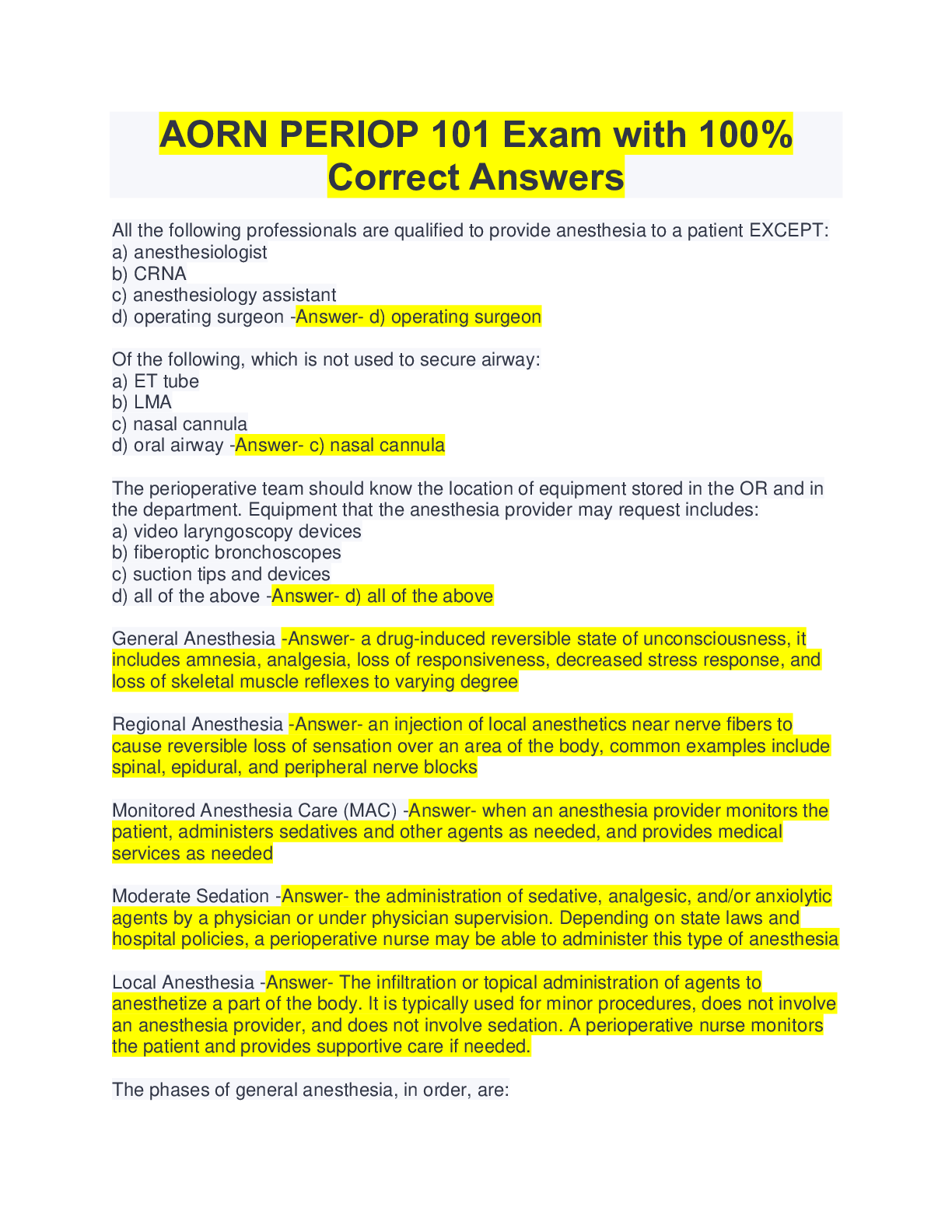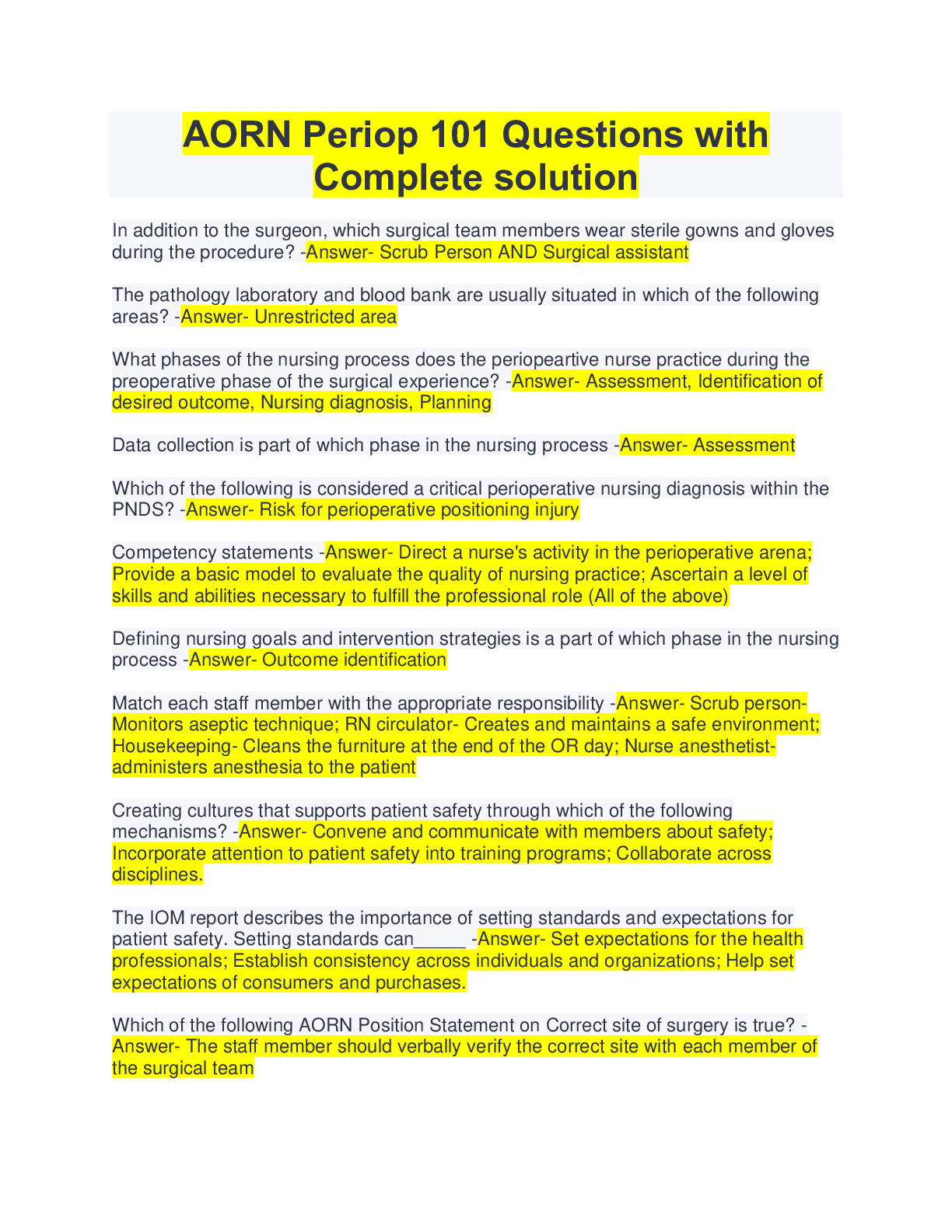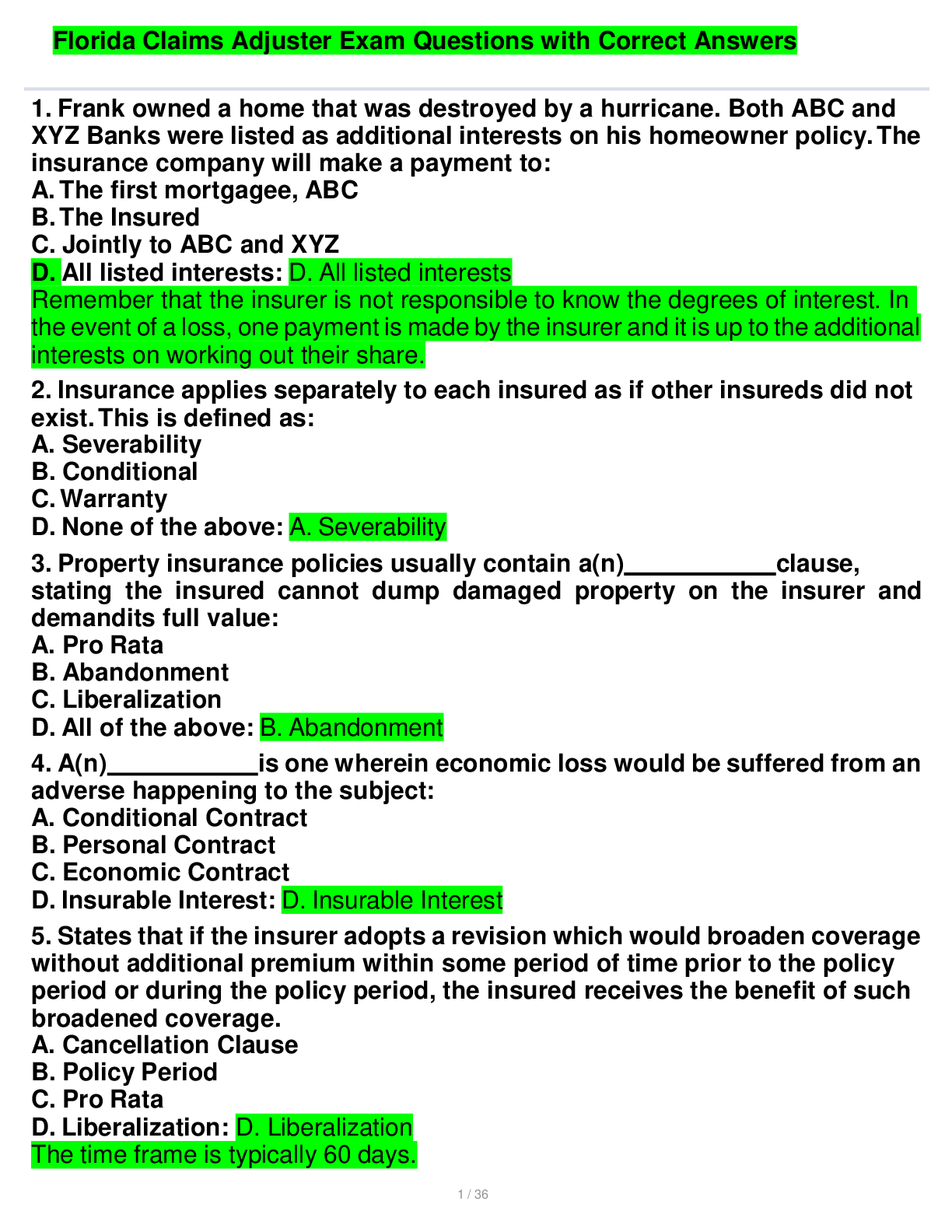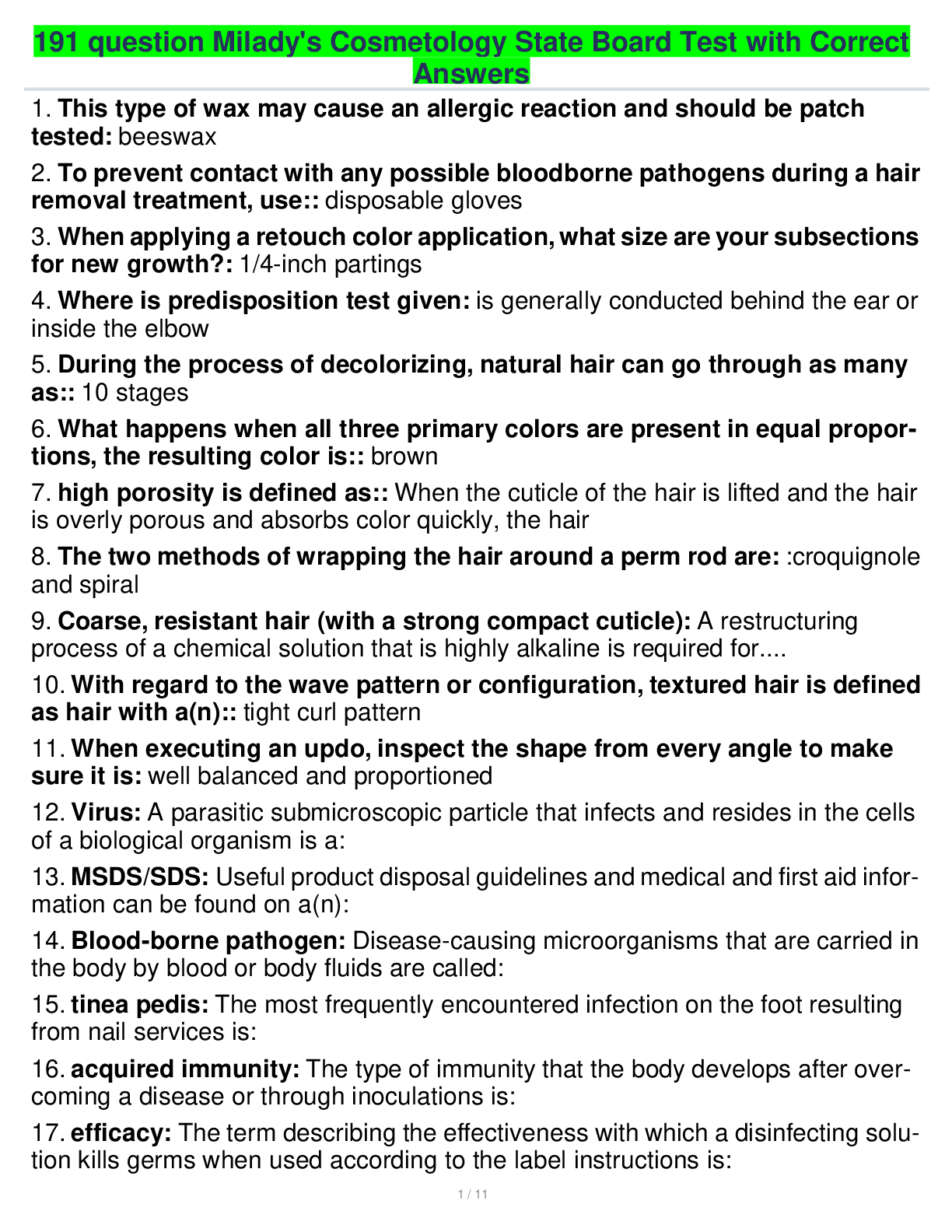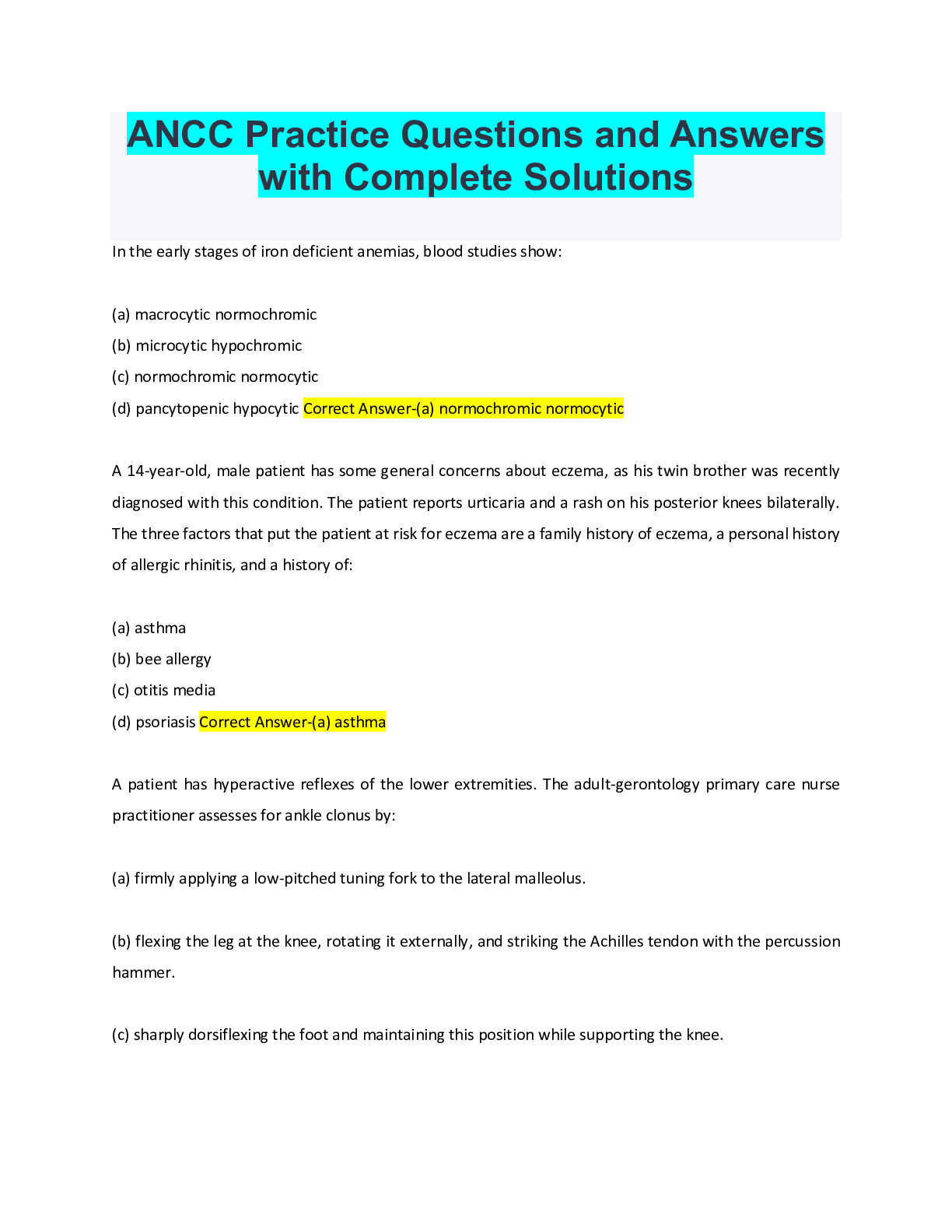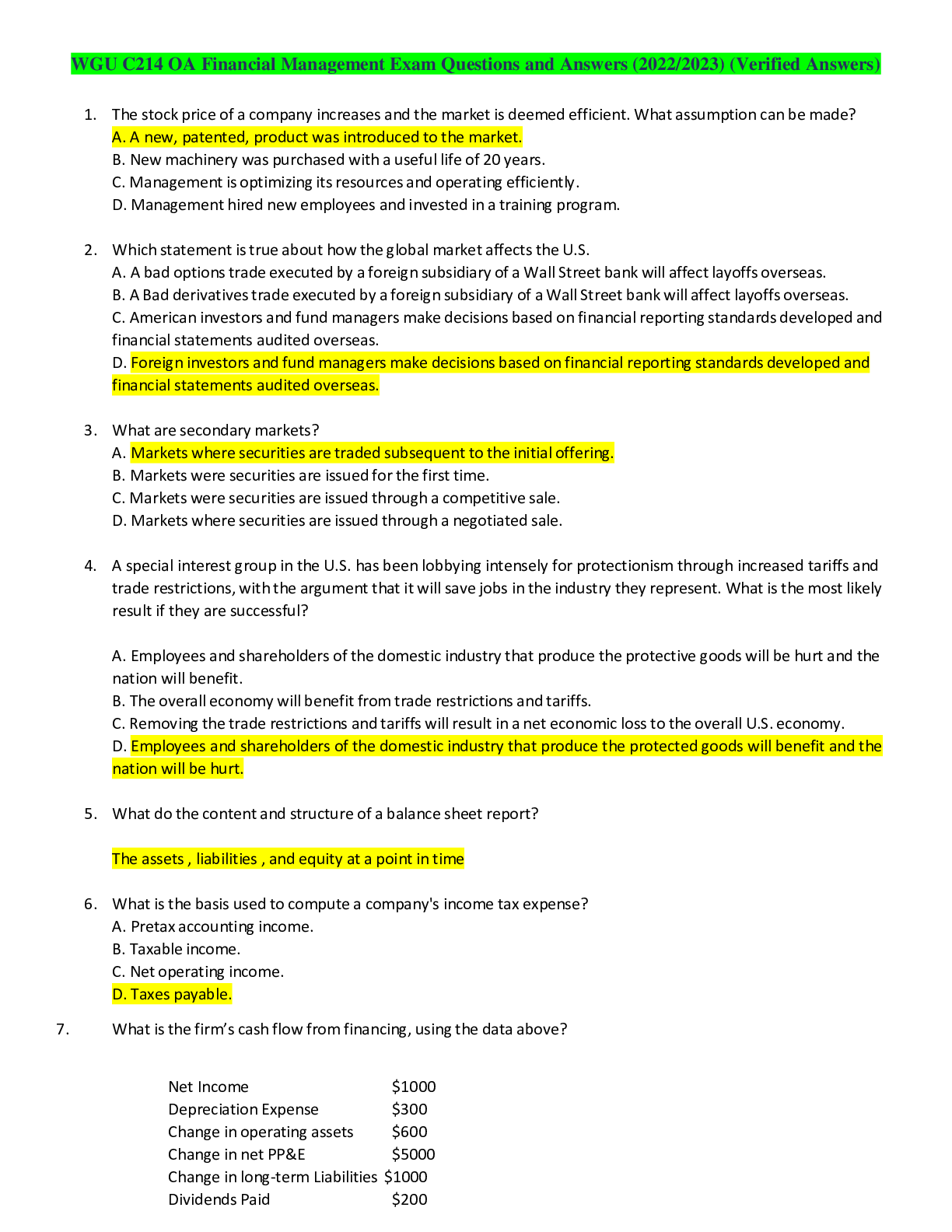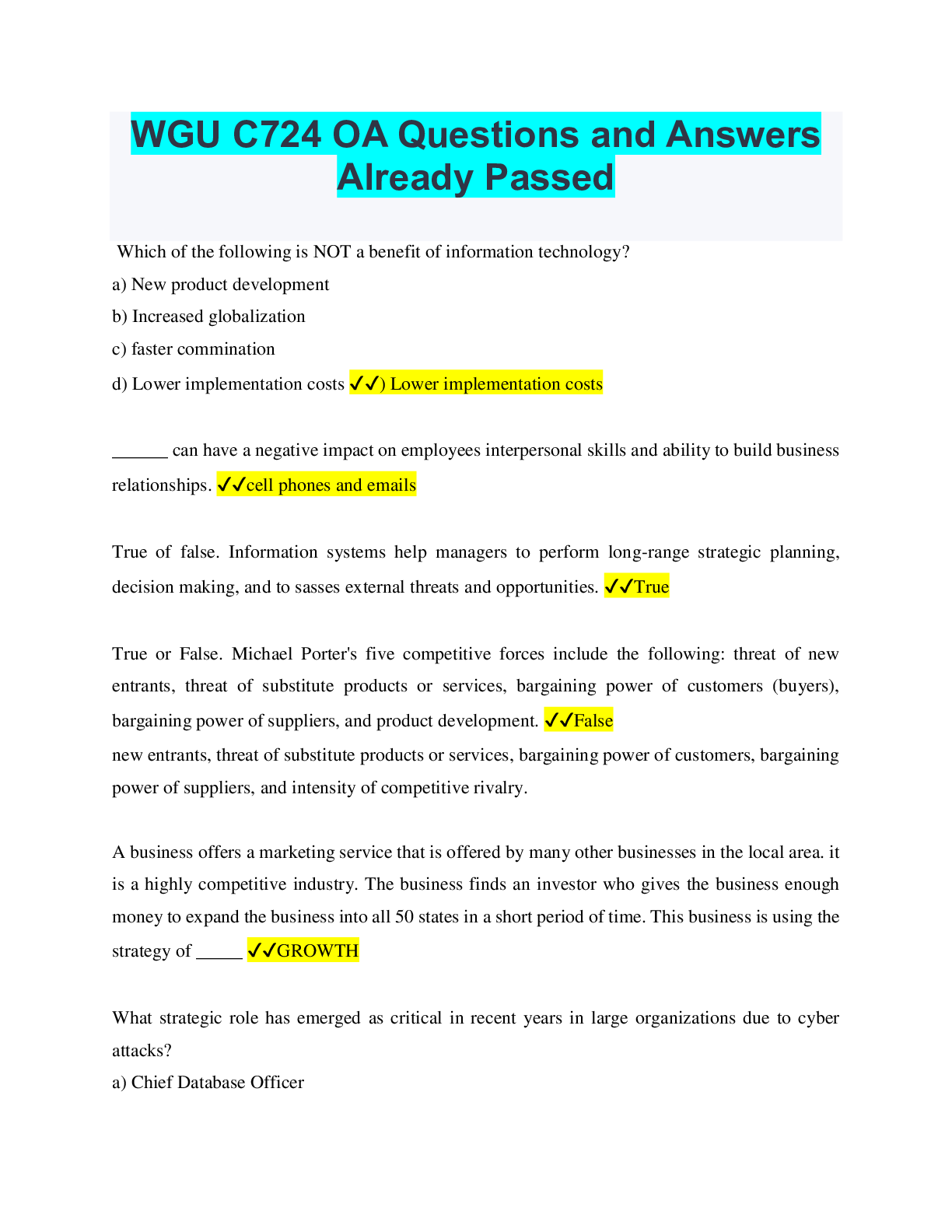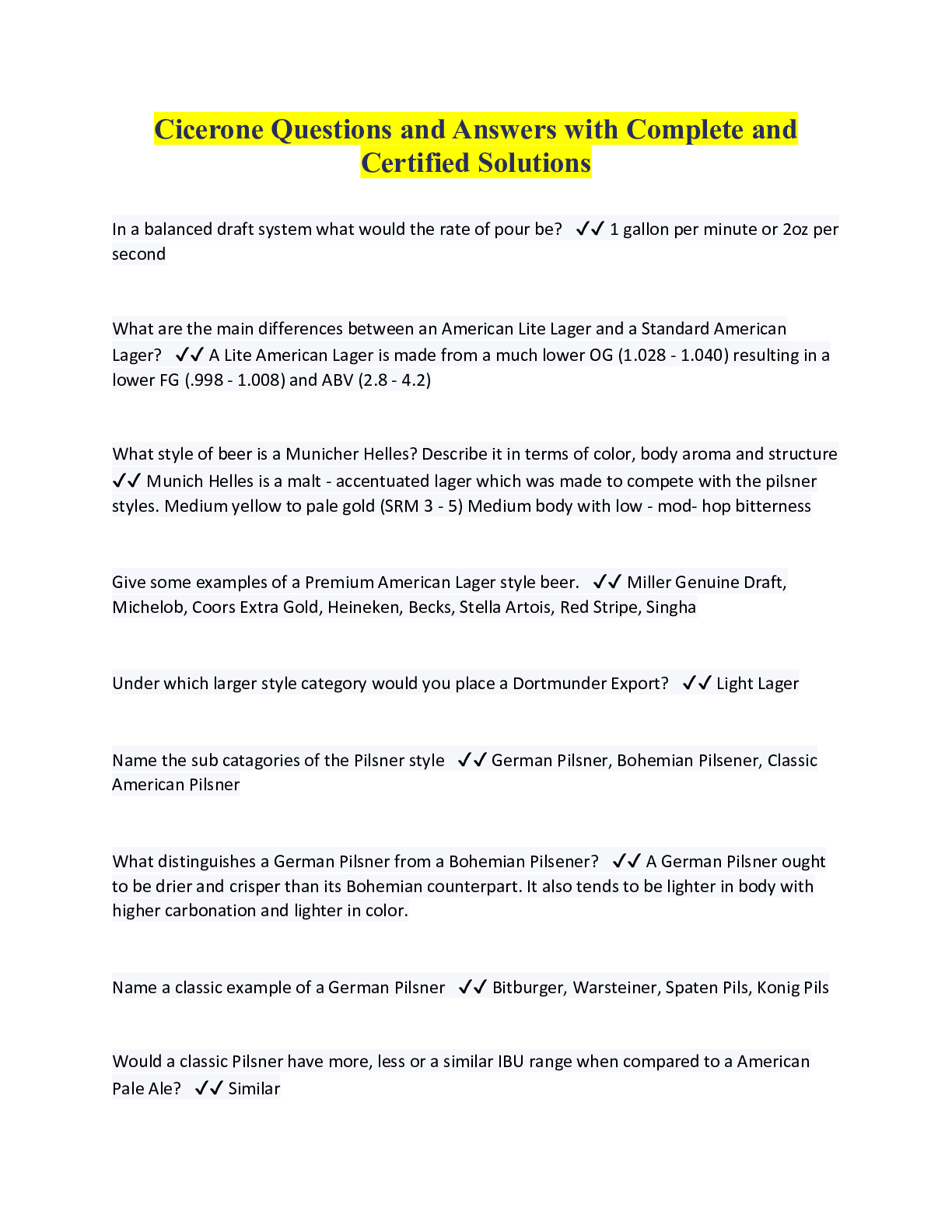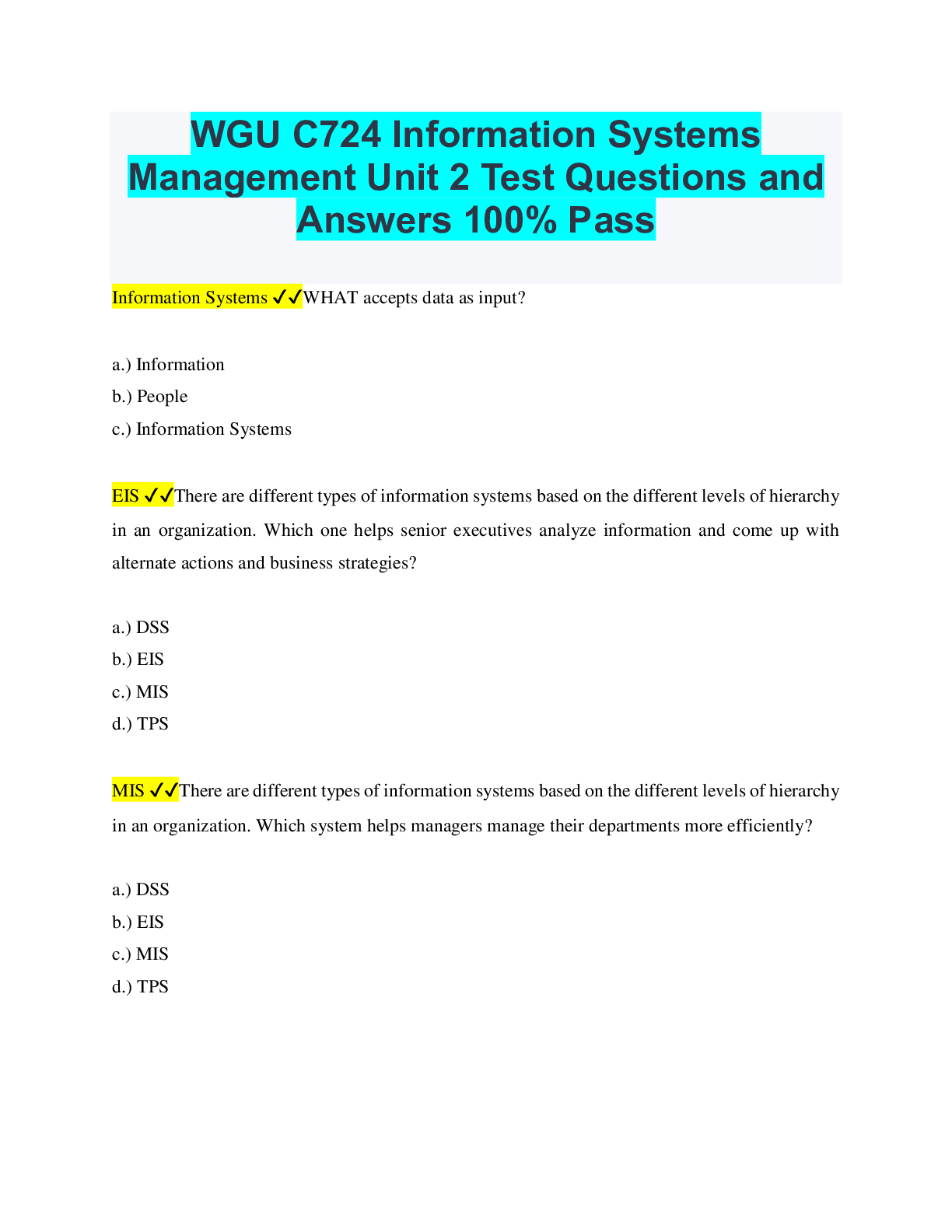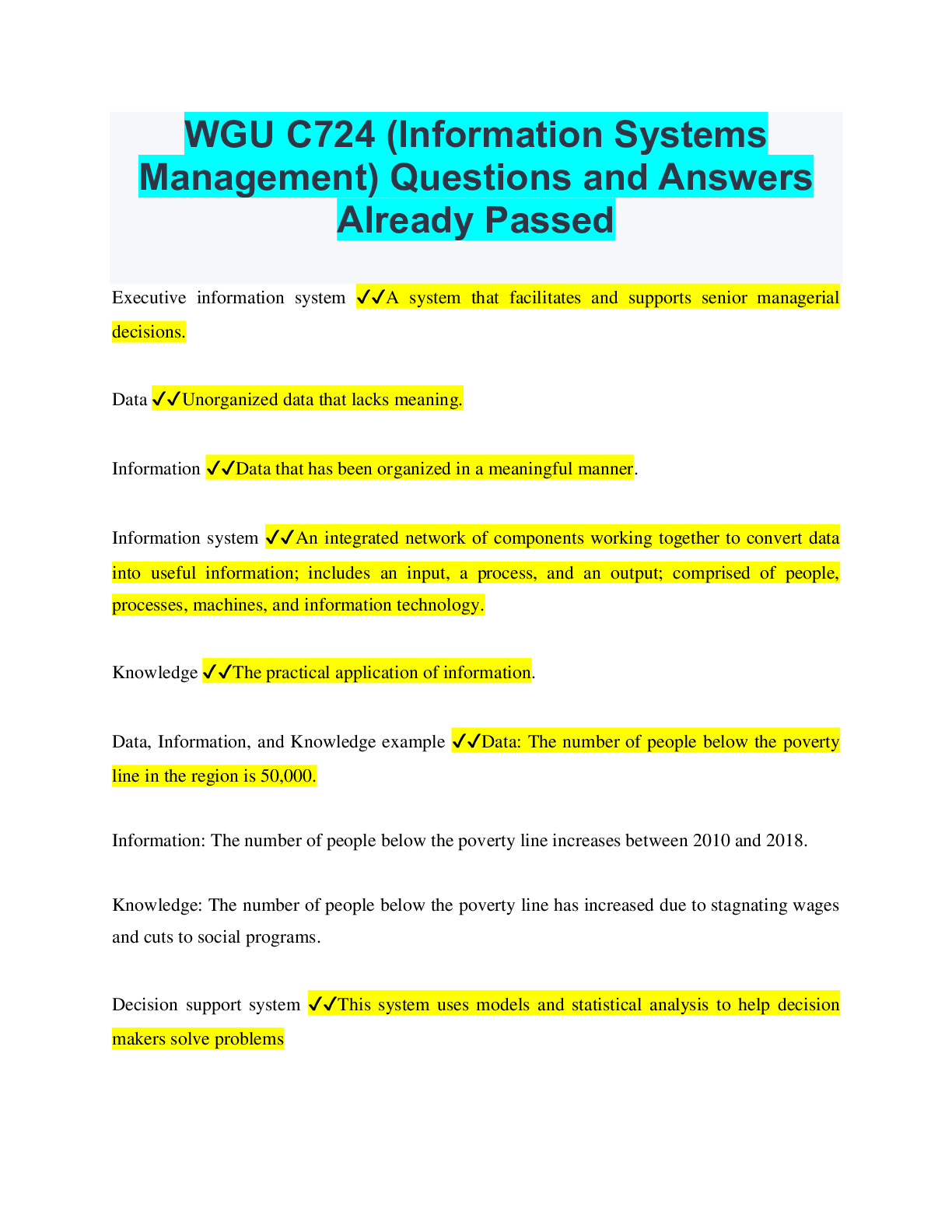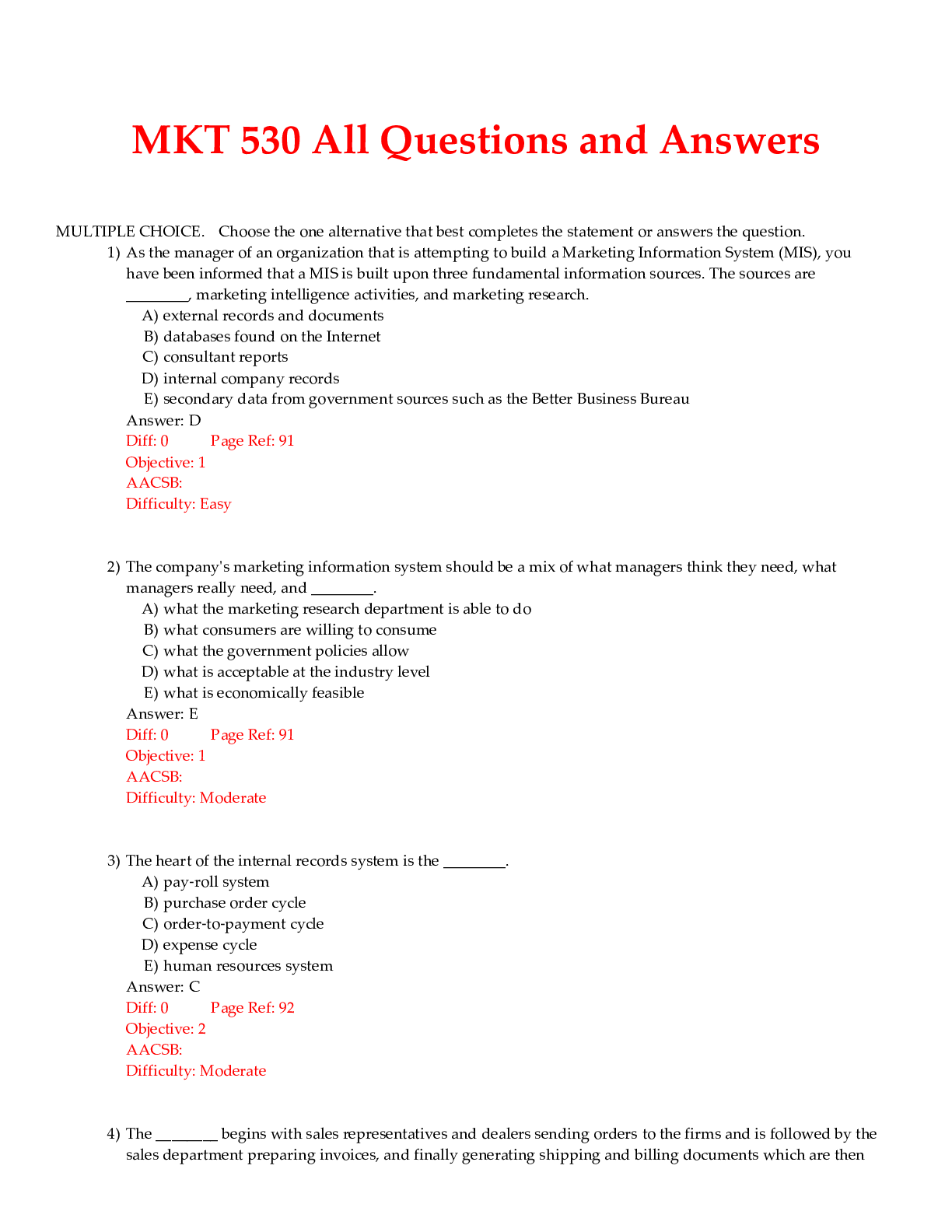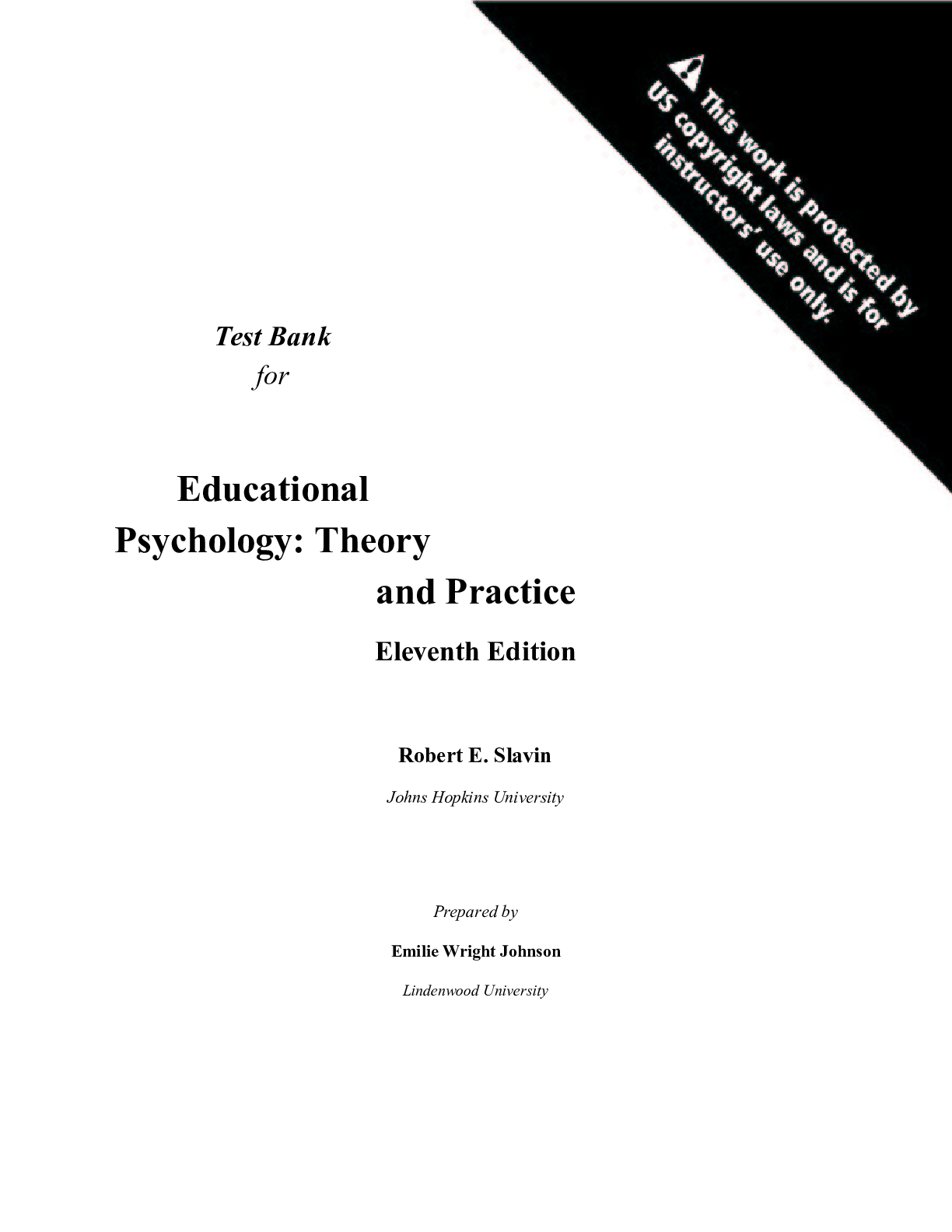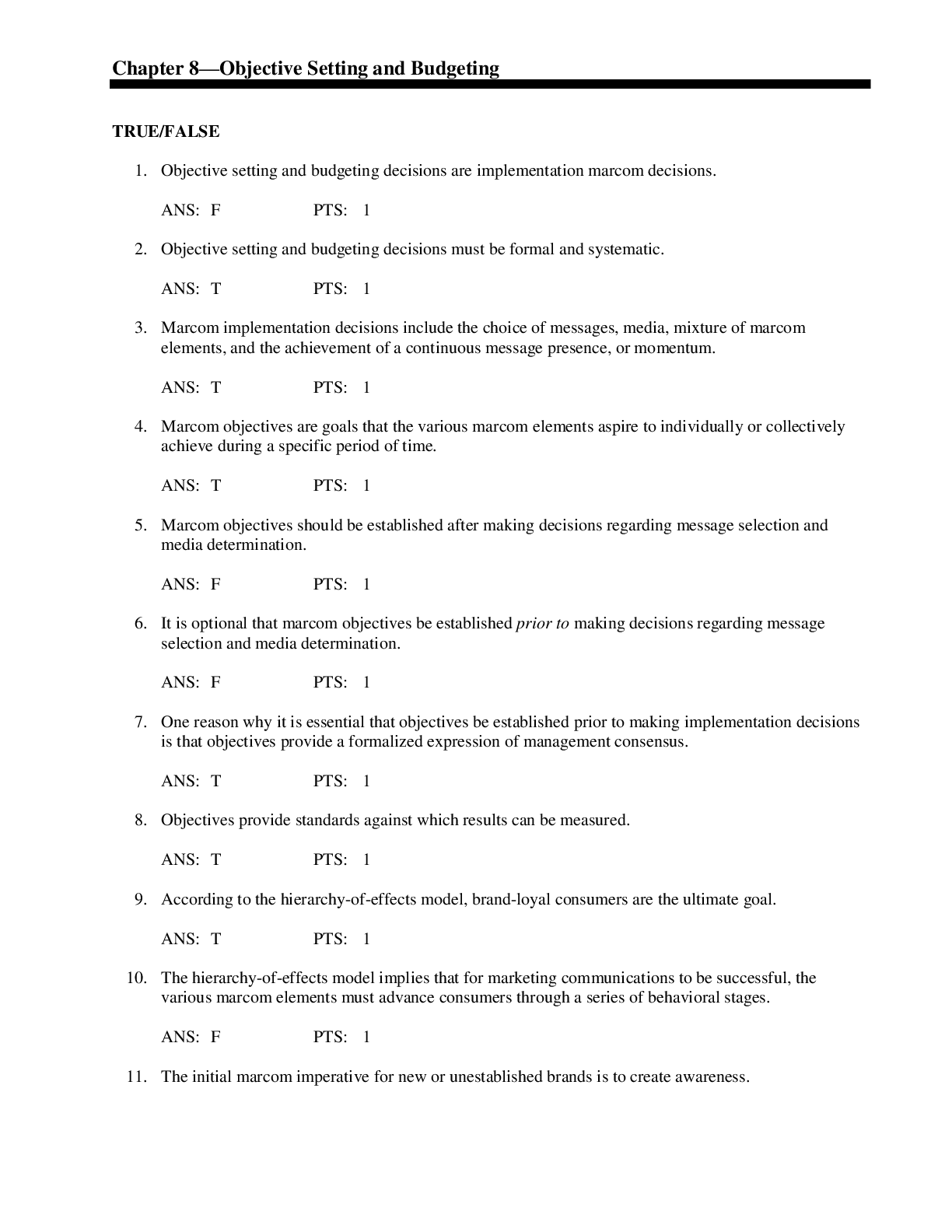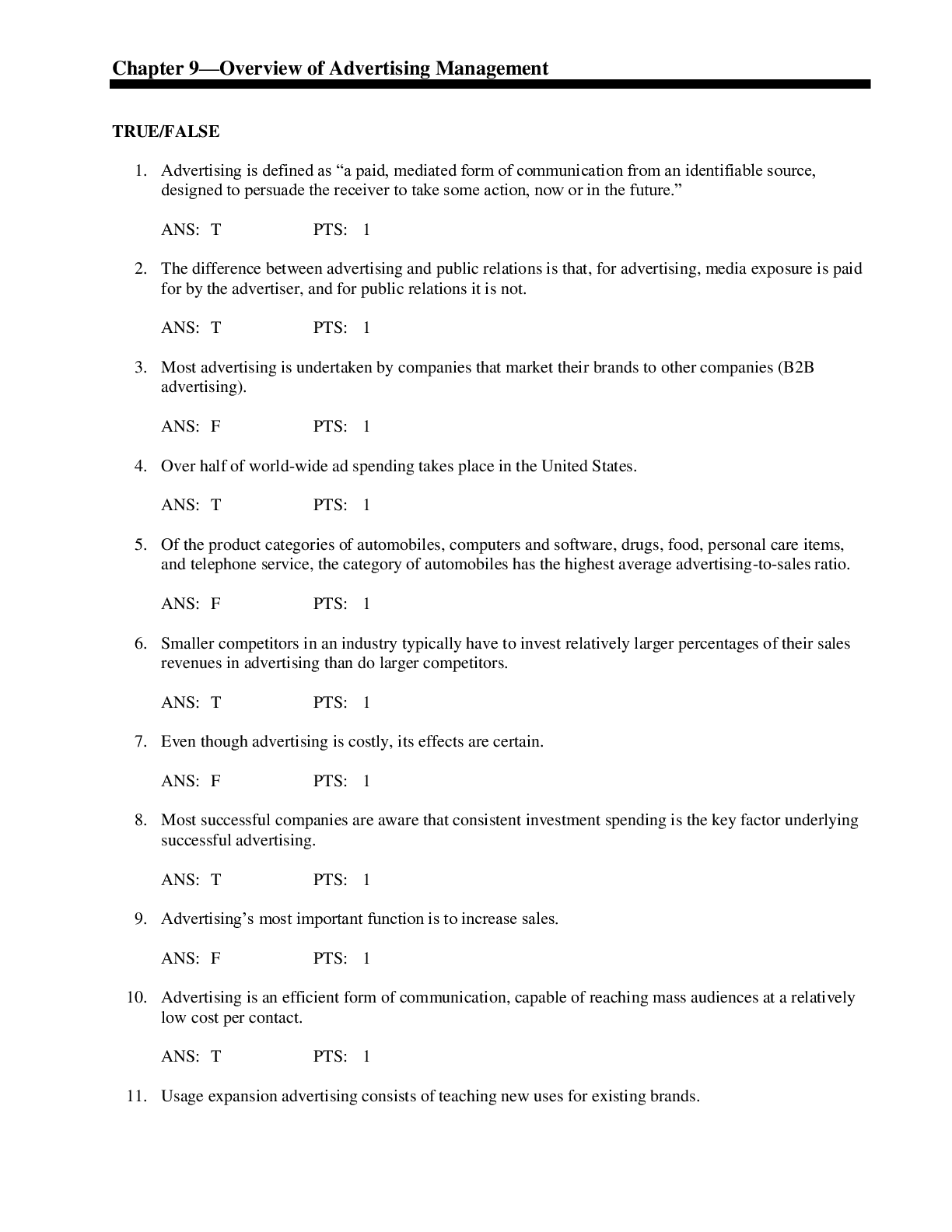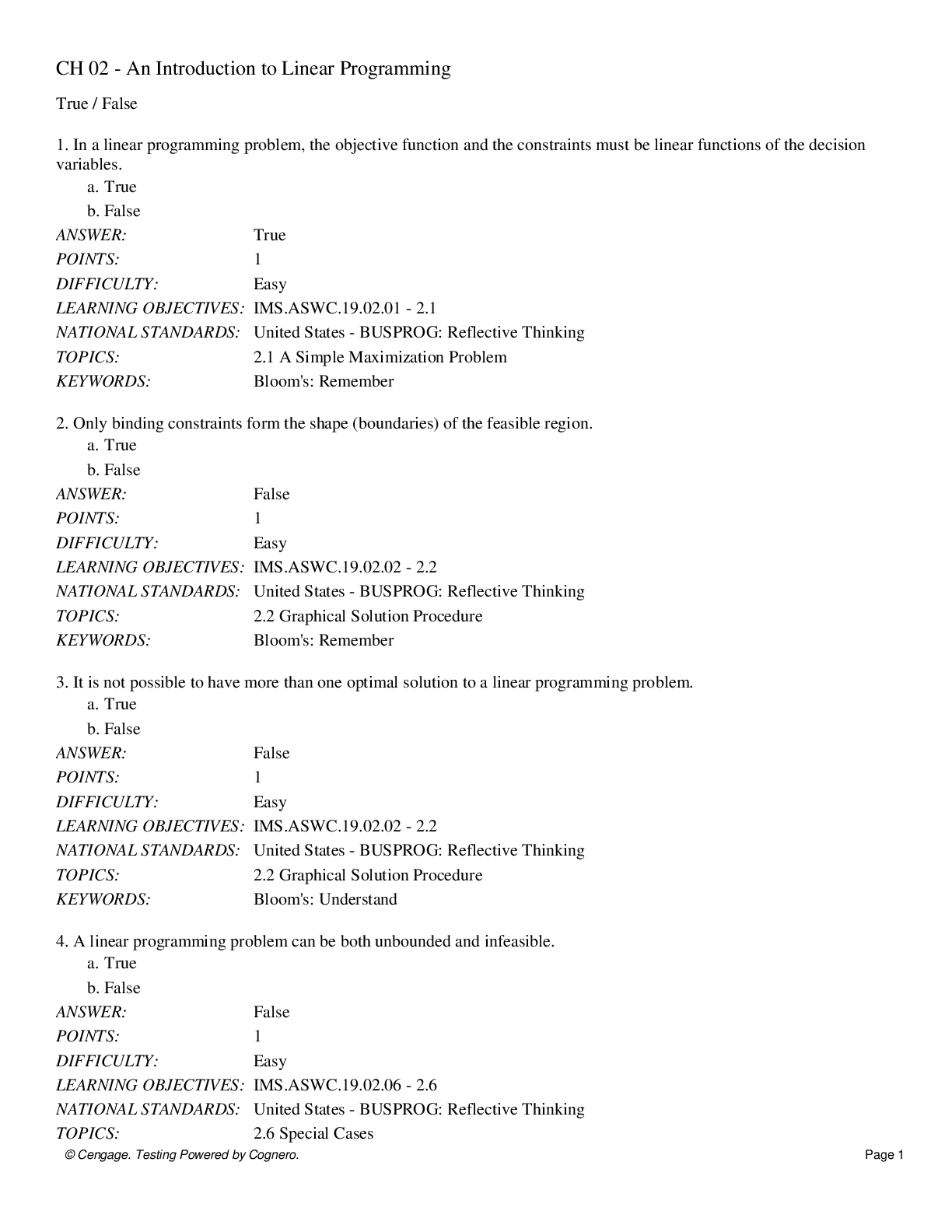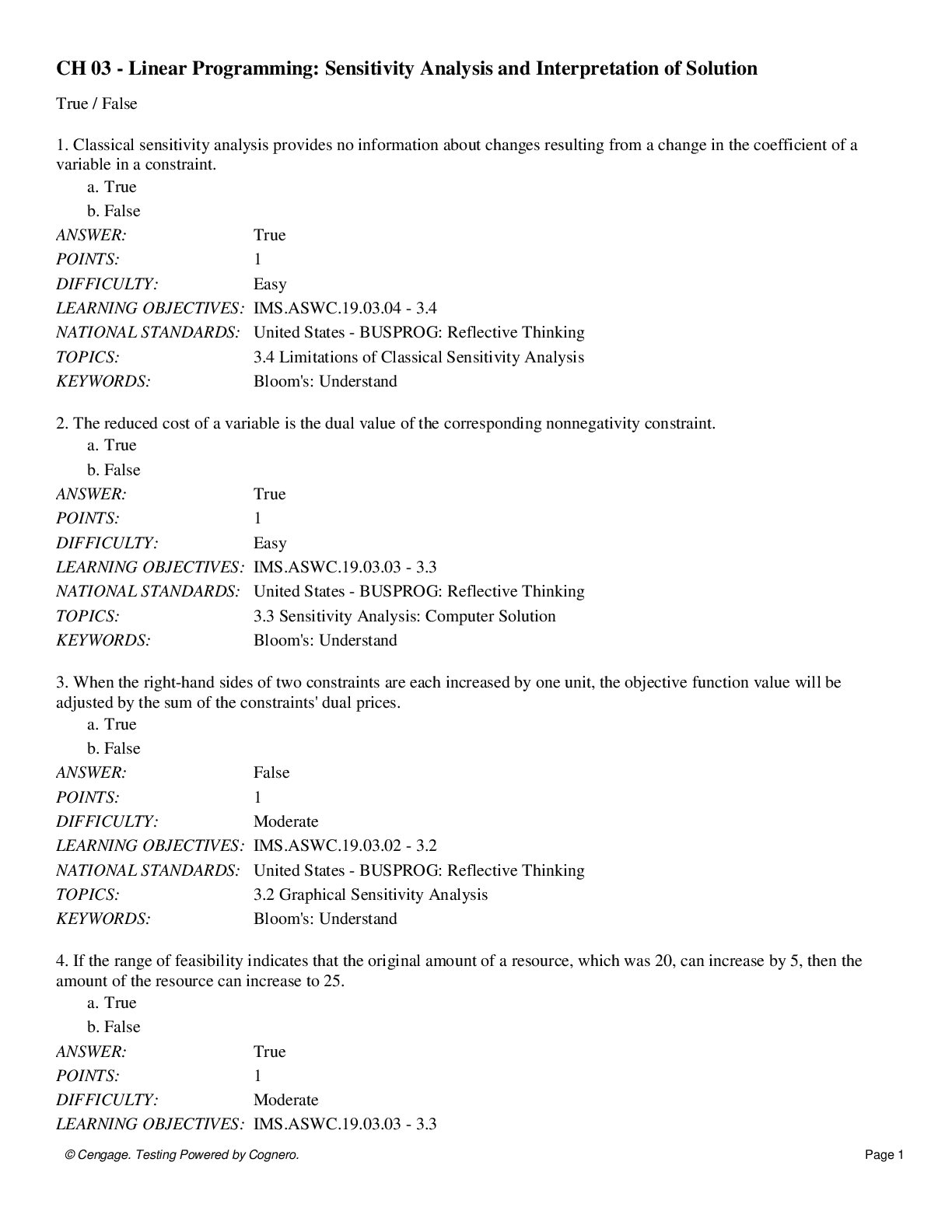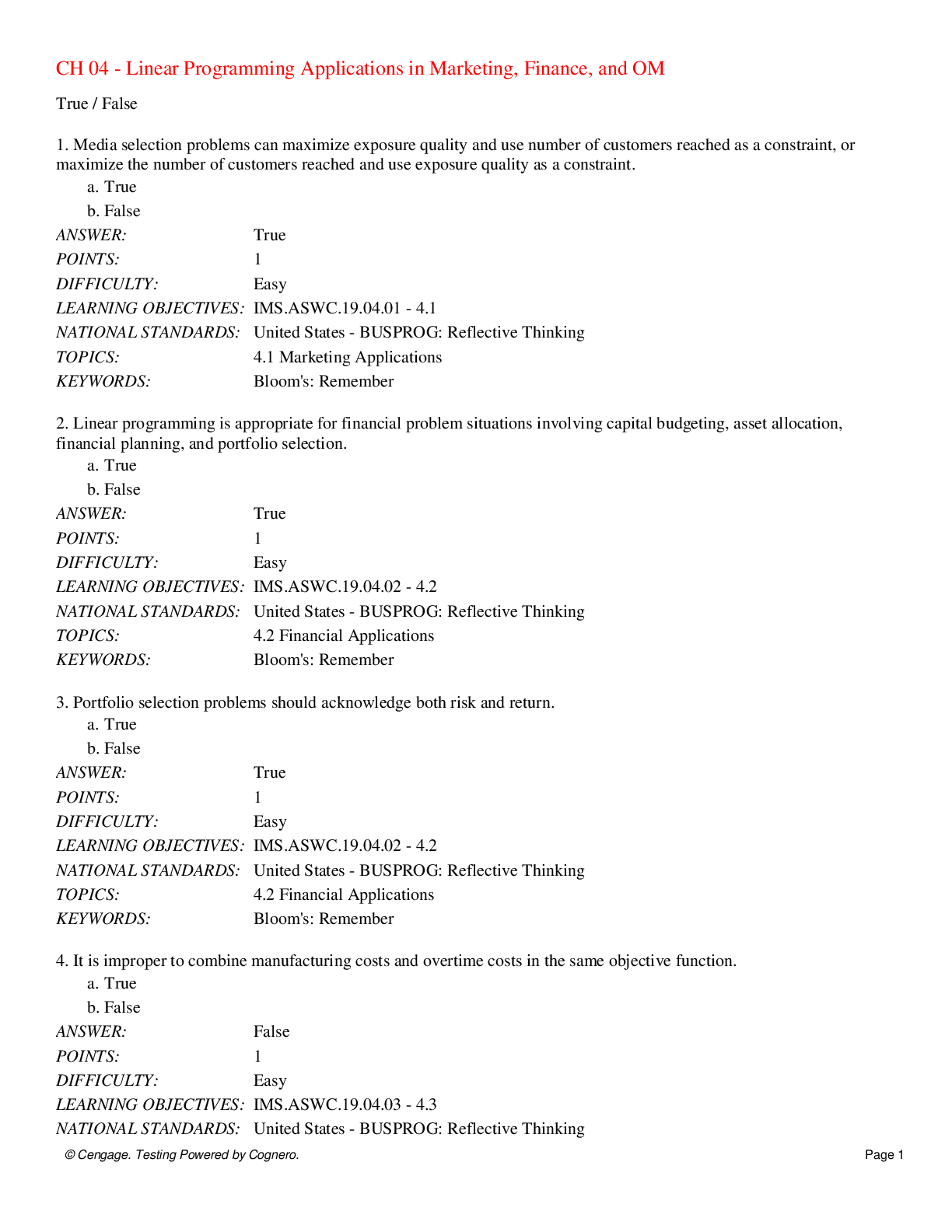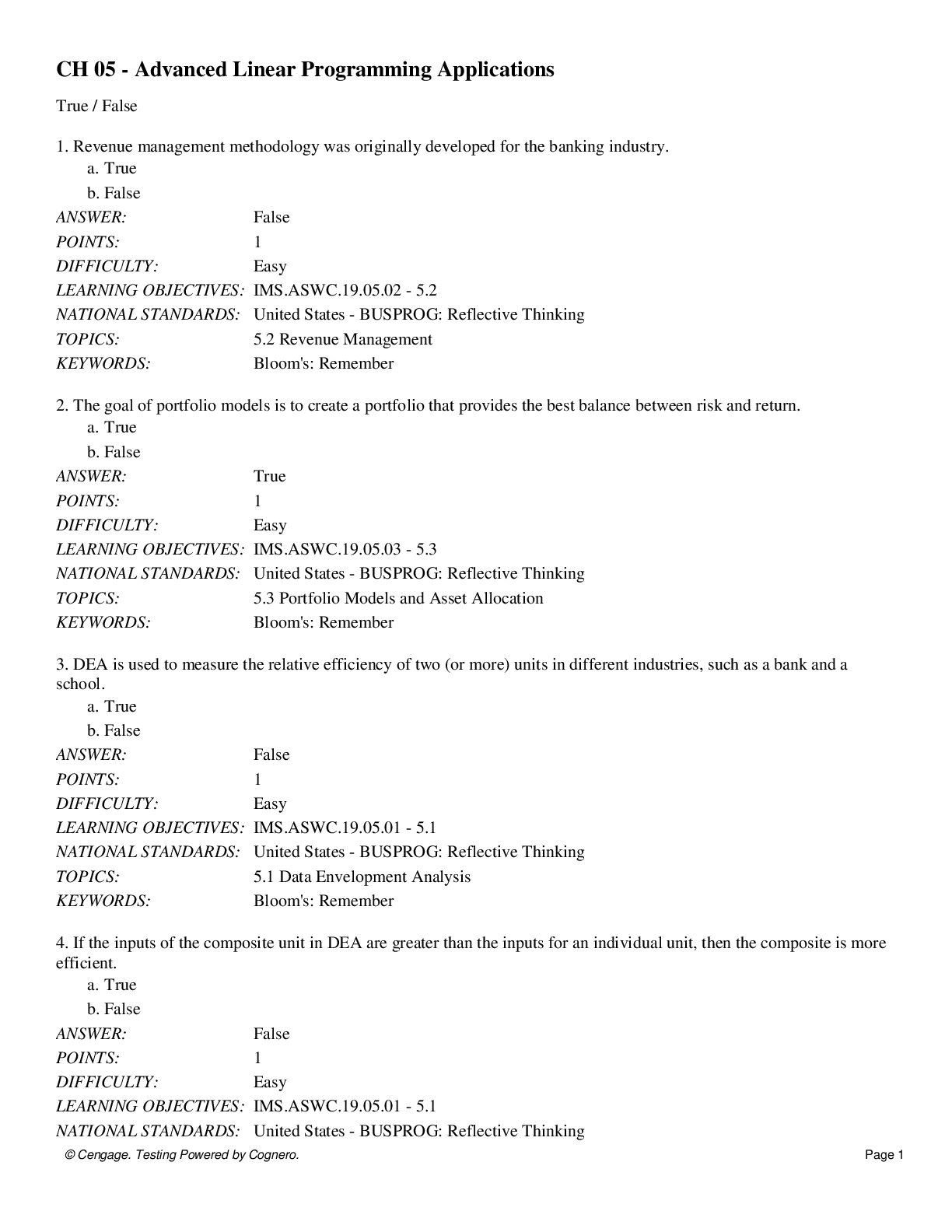Literary Studies > QUESTIONS & ANSWERS > AP European History Chapter 19 Questions and Answers with Complete Solutions (All)
AP European History Chapter 19 Questions and Answers with Complete Solutions
Document Content and Description Below
AP European History Chapter 19 Questions and Answers with Complete Solutions July 14, 1879 ✔✔This was the largest Third Estate revolt as a result of Louis XVI getting mad at them for trying to... make a new constitution. Louis had increased his troops at his arsenals in Paris to inflame public opinion. The Third Estate needed weapons and invaded Invalides and then Bastille, an armory/state prison. When the Bastille fell, it symbolized the defeat of despotism. The Bastille ✔✔a royal armory and state prison. It's fall on July 14 1789 quickly became a popular symbol of the triumph of liberty over despotism July 4, 1776 ✔✔The date of the writing of the American Declaration of Independence, which said that America was free from Britain in all ways. This in turn started a war between Britain and America. The Declaration was primarily written by Thomas Jefferson. Natural rights ✔✔"life, liberty, and the pursuit of happiness." Yorktown ✔✔Location where General Cornwallis, British commander, surrendered to Washington with a French and American army and a French fleet. The Constitution of 1789 ✔✔Congress proposed twelve amendments to the Constitution and the ten that were ratified are now known as the Bill of Rights. The reason the Constitution passed through was the promise of adding a bill of rights. It incorporated very Enlightened ideas. Bill of Rights ✔✔the ten amendments to the United States Constitution that were ratified by the states in March of 1789The Marquis de Lafayette ✔✔a French officer who served in the American war to strike a blow against England. He returned to France with ideas of individual liberties and notions of republicanism and popular sovereignty, and became a member of the Society of Thirty which was influential in the early stages of the French Revolution First and Second Estates ✔✔Former: Made up of clergy. Rich were higher up and stemmed from aristocratic families and the poor were parish priests. 130,000 people. Latter: Nobility. Divided into nobles of the robe -- gaining an office -- and nobles of the sword -- family line. Took part in mining or metallurgical practices by owning or investing. Had most postitions in military, church, and government. Both Estates exempt from taille but clergy agreed to give a contribution every five years. The taille ✔✔Chief tax of France. The First and Second Estates were both exempt from this tax, leaving it all to the Third Estate. Third Estate ✔✔everyone besides the clergy and the nobility in the kingdom, although the reps. were primarily wealthy members of the middle class. Reps made it clear that they would not allow the monarch and the aristocracy to decide the future of the nation The Bourgeoisie ✔✔the middle class, a group that included the merchants, industrialists, bankers and professionals such as lawyers, holders of public offices, doctors and writers. Upset by the fact that they did not receive the same privileges that the nobles did. Eventually some did transfer to the Second Estate. French Parlements ✔✔French noble councils that regulated the legislation of the king. They decided if taxes would get passed or not. They could block edicts, making the financial problem in France even worse and upsetting the reform of France. Vote by order of by head? ✔✔When the Estates-General was called because the state needed financial help, they offered raising taxes. This was the third time the Estates-General had met. Themeeting was broken down in 300 First Estate, 300 Second Estate, and 600 Third Estate. The Third Estate received double representation because they made up the majority of the population. When voting for what to reform it was question by First Estate winning or by number (Third Estate essentially) Abbe Sieyes ✔✔wrote an essay called "What is the Third Estate?" Argued that lower classes were more important than the nobles and the government should be responsible to the people. The royal council responded by doubling the size of the Third Estate's representative body in the EstatesGeneral. [Show More]
Last updated: 1 year ago
Preview 1 out of 8 pages
Instant download
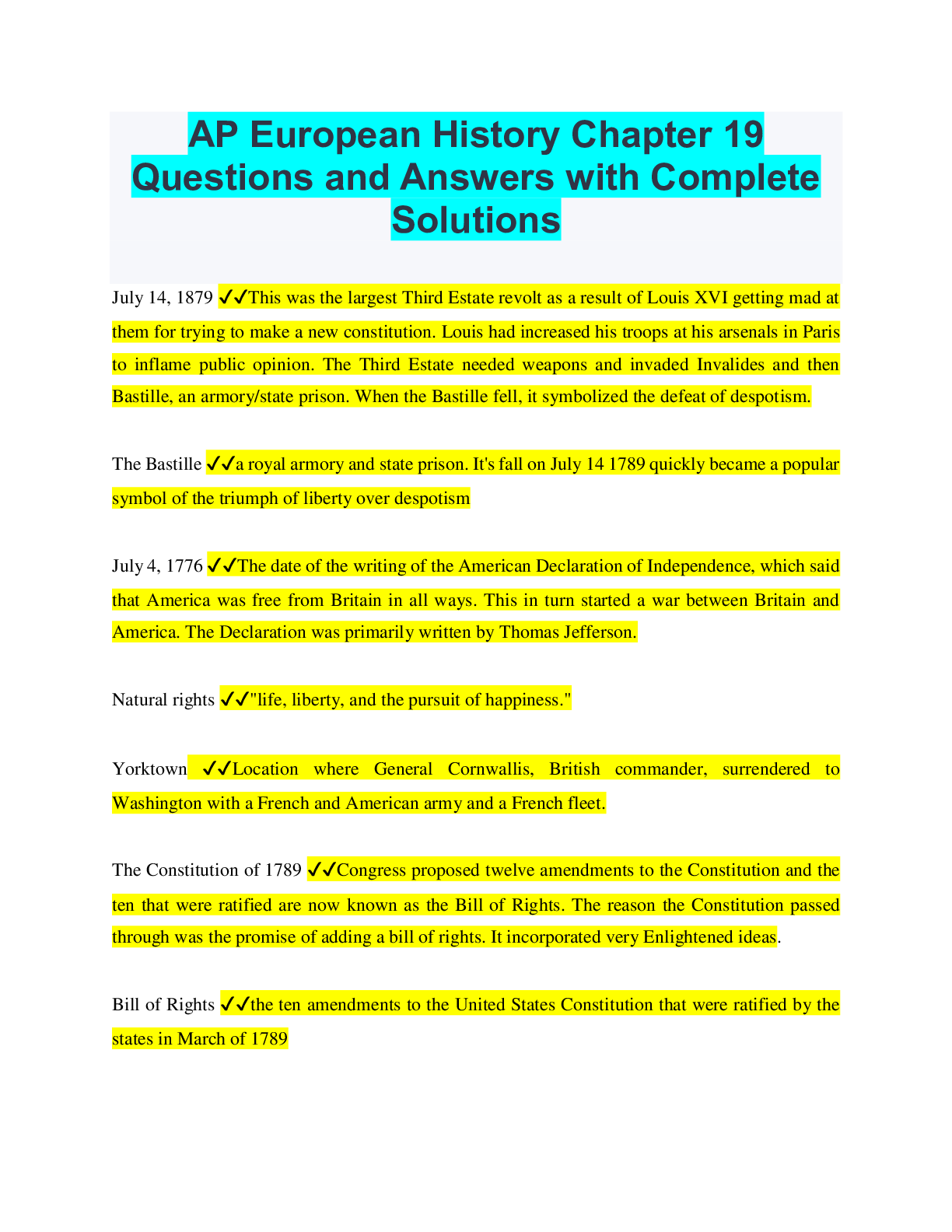
Buy this document to get the full access instantly
Instant Download Access after purchase
Add to cartInstant download
Reviews( 0 )
Document information
Connected school, study & course
About the document
Uploaded On
Nov 14, 2022
Number of pages
8
Written in
Additional information
This document has been written for:
Uploaded
Nov 14, 2022
Downloads
0
Views
195
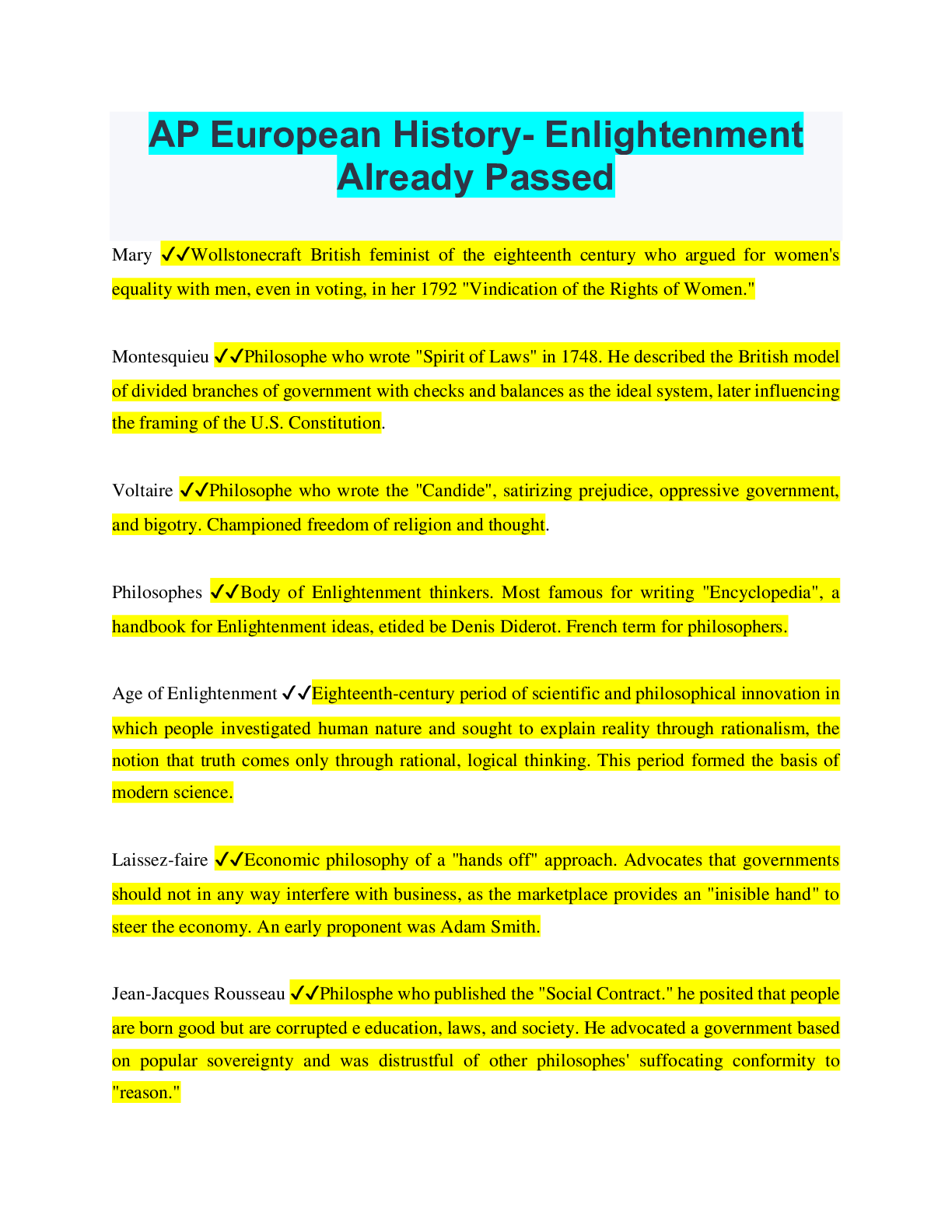

.png)
.png)
